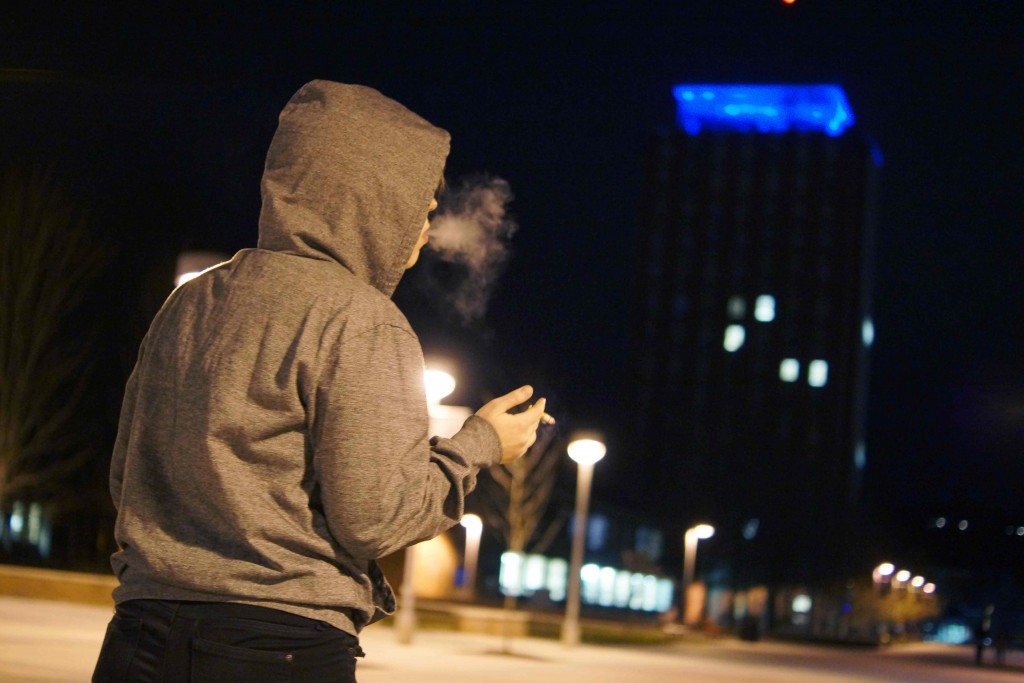
Clouds of cigarette smoke hovering outside of residence halls and the library may soon be a thing of the past. As part of a new initiative, the use of all tobacco products will be banned from Binghamton University’s campus in 2017.
A committee chaired by JoAnn Navarro, the vice president for operations, and Johann Fiore-Conte, the assistant vice president for health and wellness, drafted the policy and is seeking to implement it in a year.
“Right now our goal is to have a policy that will be effective August 1, 2017,” Navarro wrote in an email. “That will give us a full year plus to provide educational programming and assist those who are interested in kicking the habit.”
The initiative entails a “tobacco-free” campus as opposed to “smoke-free,” which means all forms of tobacco are banned, such as chewing and dipping tobacco as well as cigarettes and electronic cigarettes. It would ban the use of such materials on property owned, leased or operated by BU, which includes use in independently owned cars being driven on campus property.
Navarro said BU’s implementation of the policy is part of the SUNY-wide “Strategic Plan” that looks to create a healthier New York, starting with the 64 college campuses; the 21.6 percent smoking rate of those ages 18-24 in New York state is 58 percent higher than those in high school, according to the American Cancer Society. Seventy percent of SUNY institutions are currently in some phase of implementing a tobacco-free policy, according to system statistics.
“The health of New Yorkers is essential to the state’s economic success and few organizations, public or private, can address New York’s health care challenges as powerfully as SUNY,” said a SUNY press release. “SUNY is compelled to contribute to a healthier generation and given the statistics, it is important to pass tobacco-free policies to mitigate the exposure to tobacco in the college environment.”
According to Navarro, the policy is also meant to combat the harms caused by secondhand smoke and the litter created by cigarette butts, which can be eaten by animals on campus, according to the proposal. It would be enforced by the community, with students and faculty encouraged to “attempt to resolve the problem informally by requesting that the individual comply with the policy,” according to the proposal. If that fails, those concerned can contact the BU department of human resources to lodge a complaint.
For those looking to quit, Navarro said the school would be partnering with UHS to distribute cessation materials like patches and nicotine gum. Fiore-Conte added that helping BU smokers kick the habit was a vital part of the initiative.
“This initiative is important, large in scope and affects our entire campus community,” she said. “It is important that our approach be sensitive and thoughtful. The extended implementation timeline will allow us to create and undertake efforts that will support our many campus constituents as we move forward.”
The proposed policy is currently in the second week of a three-week open-comment period, where members of the BU community are welcome to provide feedback on the draft online. Navarro said the responses have generally been in support.
“We have only received one comment thus far by someone who was not in favor of the policy,” she wrote. “All of the rest of the comments have been extremely positive.”


